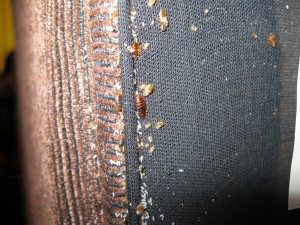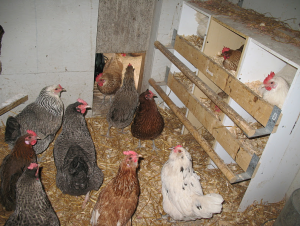How to Prevent Infestations in Your Rental Home or Flat
As winter is upon us, now is the time for buying Christmas presents, wrapping up warm… and a little bit of pest prevention! Since spring will bring plenty of sunshine, flowers, and pests, now is the perfect time to prepare your home for next year, and the threat of oncoming pests.
Mice and cockroaches are the most common pests in most homes and flats, causing health hazards, contamination of food, safety risks and various unpleasant odours, meanwhile many tenants may even have phobias for these pests, causing further trouble. On top of this, a number of pests can damage buildings and fittings, with insects boring holes into building work and mice chewing electrical cables, which can short-circuit and cause a fire. That’s why it’s key to keep on top of things so that you don’t get an infestation that only a pest professional such as ourselves can sort out.
Pest control can also be a big inconvenience, and of course is an expense that may not be need with careful pest prevention, so the issue of who should deal with the issue between you and your landlord can be a source of tension. It’s usually the responsibility of your landlord to call a pest control service to conduct regular treatment of the premises, whether in a home or a flat. You must ensure that this clause is stated clearly in the lease agreement.
Avoiding infestation
The real pest control is done in the home itself. It’s good to keep your surroundings and home environment clean to avoid infestation from invading pests. If you fail to adhere to reasonable sanitation, then one day you will inevitably have to call in a professional exterminator to help treat the infestation.
The good news is that a pest infestation is not the end of the world. There are many options available to manage outbreaks in your rental home or flat and put an end to your worries about pest problems and an infestation of creepy crawlies.
The most popular solutions in handling pest problems are prevention and action. Once you initiate a prevention strategy, its hoped that you’ll never be faced with an invasion of pests again, but it is good to be prepared if your approach fails to work, or you relocate to a new home with a pest problem.
Strategy 1: Prevention
There are a few ways you can tailor your home to prevent pest infestations. Here are a few key tips that anyone can implement straight away:
- Ensure your food items are kept in dry and airtight containers, preferably glass or heavy plastics. Pests love sugar and flour. Hungry pests are aggressive enough to chew through tough polythene bags to get what they want.
- Clean up all areas used to prepare meals and ensure your dishes are kept clean when not in use. Small crumbs are especially attractive to ants and roaches.
- Keep all uneaten food in the refrigerator. If you love putting fruits in your living room ensure they’re well covered.
- Sweep, vacuum and mop your kitchen regularly. Pests will find the tiny invisible crumbs that fall onto the carpet or collect around corners and between the boards. You may even extract insect eggs lurking in all the unseen dust.

Strategy 2: Keep things dry
- Ensure no stagnant water is left in bathtubs, sinks and washing areas. Its normal for pests to go for weeks without feeding, but moisture offers nourishment for lengthy periods.
- Check the plumbing in your home especially under sinks and pipes to ensure there aren’t hidden leaks or drips. Ask your property management company to seal all cracks and gaps around cabinets and walls.
- Find out the particular pest invading your home so that you can plan the best extermination process.
Strategy 3: Keeping pests out
The following tips will help you ensure no infestation occurs in your home or rental property:
Exterminate frequently
Plan to call in an exterminator frequently. This is best before you even see any insect, bug or rodent.
Keep all common areas clean
Ensure all common areas including gardens are free of trash and debris.
Seal up crevices
Keep the critters away by sealing up cracks and crevices. This should be done both in the interior and external walls of the property.
Buy good trash receptacles
Buy proper waste bins to help prevent infestation. Ensure containers are sturdy and come with lids which should remain secured at the top. Ensure they don’t develop holes and cracks where roaches may enter through.
Get rid of water and clutter around your property
Any idle standing pools of water are a fertile breeding ground for insects. Get rid of water around your property. Also, remove all clutter from your property. This can be logs, wood or compost. Ensure hedges are well trimmed, and the lawns are mown.
We hope these tips were useful for preventing pests in your home or other property, and with good management, we shouldn’t have to see you at all! But of course, if you do have a pest problem, get in touch as soon as you can so that the infestation can be dealt with quickly and effectively. As always, we’re here to help!




